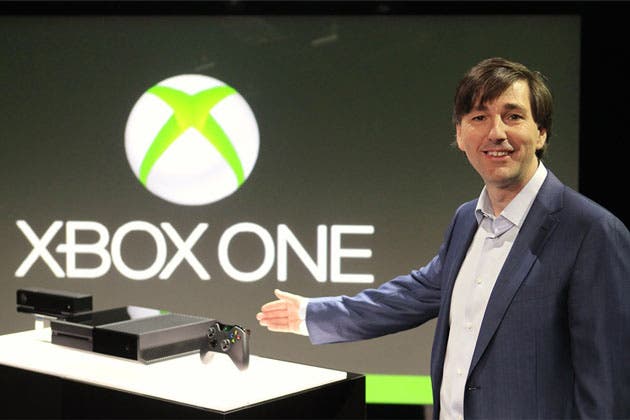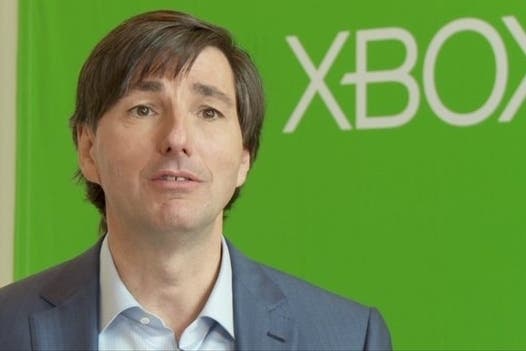So long, Don Mattrick
Xbox off.
So then, Don Mattrick has left Microsoft's Xbox division and taken over at Zynga, where founder Mark Pincus will step away from day-to-day running of the company so he can focus on product development.
Mattrick's departure shouldn't come as too much of a surprise, but not because of anything to do with Xbox One. These things aren't decided overnight, and the greater likelihood is that, after six years running the Xbox division, Mattrick felt he had nowhere else to go. He was given a direct line to Steve Ballmer a while ago, but there wasn't much left within the company he could logically take over.
The timing is the one thing that may not be a coincidence. Microsoft hasn't enjoyed the roasting it's received since it unveiled Xbox One on 21st May, and, assuming Mattrick's departure was already in motion, simply allowing him to leave a little earlier than expected could help reduce any lingering toxicity further - even in the absence of an immediate successor.

Mattrick's legacy at Microsoft will be hard to judge fully until Xbox One has launched, but his impact during the last six years on the company has certainly been pronounced. On a financial level, the Entertainment and Devices Division, of which the Interactive Entertainment Business is a part, has seen sizable increases in revenue and produced steady profits after many years of losses.
Mattrick staked his early reputation on user acquisition, talking bullishly during his first E3 press conference about outselling PlayStation 3 worldwide - something that he has pretty much delivered on, with both consoles having sold just under 80m units and Xbox 360 ahead in many territories. He also drove Xbox Live adoption from a few million people when he took over in July 2007 to nearly 50 million today.
Since then, he has also overseen a broadening focus for the Xbox business that has seen the console move further away from its gaming heartland in the hope of becoming a true multimedia device. Substantial software updates, like the famous "New Xbox Experience", emphasised other forms of media, while Mattrick's team signed a range of global partnerships with the likes of Sky TV.
Mattrick had a big picture in his head, then, although it's tempting to conclude that - despite six years at Xbox and 25 years at EA - he could never quite get a handle on games and gamers themselves. His robotic E3 performances betrayed his lack of connection with all those users he was busy acquiring, and he seemed more relaxed when he was palling around with film directors and musicians than game developers. Whereas Peter Moore memorably played Rock Band live on stage just prior to his own departure from Xbox, Mattrick rarely got his hands dirty.
That disconnect was particularly evident in the lack of successful new first-party games under Mattrick's leadership. Stalwarts like Halo, Gears of War, Fable and Forza Motorsport remained popular, but there was a shortage of new IP or new ideas within existing properties. Mattrick appeared uncertain how to approach development in general, at one stage moving his division away from studio ownership, only to reverse that trend in later years. The biggest new studio created during his tenure was 343 Industries, built to produce Halo sequels - an uninspiring decision that suggested a kind of bored indifference to games themselves.
He also didn't speak to the specialist press much, although that's probably just as well. In 2008 he appeared to publicly alienate Halo creator Bungie, which had broken free of Microsoft a few months earlier, by withholding Halo 3: ODST from public presentation at E3 and making misleading statements about the studio's reaction. He didn't do much better when he spoke to the press at E3 this year, suggesting that gamers upset about Xbox One's internet requirement could buy an Xbox 360 instead.
For me, though, the thing that sums up Mattrick's reign is Kinect - the groundbreaking new technology that Microsoft claimed could revolutionise control not only of video games but potentially computers as a whole. With no need for a controller, you could direct actions on-screen with a range of gestures. After an E3 unveiling where Steven Spielberg - who directed Minority Report, in case anyone was missing the point - talked about its transformative potential, Kinect was rushed to market with a slew of games from prominent studios and sold a lot of units.
But beneath the headlines and figures, it was a bit of a mess. Lionhead, an expensive acquisition under Xbox's previous leadership, worked on a pair of games for Kinect, but the more ambitious of the two never came out - infuriating developers who had invested a lot of time and energy on it - while the other flopped spectacularly. Out of dozens of games for Kinect, only the Dance Central series and Q Entertainment's quirky Child of Eden met with widespread critical acclaim, while recent sales of Kinect-specific games have been disastrous.
There was no killer game to hang the technology on - just a sense that it was new and different and would give Microsoft a foot in the new market Wii had created, perhaps best reflected in Rare's Wii Sports-style Kinect Sports mini-game title. And on a technical level, Kinect simply wasn't very good when it launched. It's only now as part of the Xbox One project that its capabilities are starting to resemble the claims made about it during those early years, and for many people it may be too late. Worse, the decision to make Kinect a central part of Xbox One has raised new issues with privacy advocates, who object to having a camera and microphone turned on in their living rooms 24/7 - let alone one where Microsoft has talked up its ability to see through you in the dark.
Looking back at Mattrick's stewardship of Xbox, it's hard to escape the conclusion that he was a better business executive than he was anything else. He grew all the numbers, he signed big partnerships, he got products to market and he had a big vision for how it could all tie together, but he never seemed to lay down any creative direction. In his haste to achieve scale, he also ignored or aborted grassroots movements his predecessors valued, like Xbox Indie Games and Xbox Live Arcade, and he shipped Kinect prematurely, when there must have been experienced voices within his organisation counselling him that it wasn't quite ready.
All of which brings us to Xbox One, the first console built on Mattrick's watch, and it's here that all those priorities have truly come to the fore. The first two Xbox systems were the product of guys like Seamus Blackley and J Allard, who saw games as a medium with the potential to rival film in terms of artistic achievement, and hoped Xbox would allow the best creators - whom they courted relentlessly - to realise that potential, ensuring everyone won in the process.
Xbox One, meanwhile, with its focus on being "all-in-one" and its love of new digital business models, is a console that reflects a business leader straining to burst through a glass ceiling - as does his move to Zynga, where he can now add "CEO" to his CV. Jumping ship to a leaky alternative may seem risky, but it gives him the opportunity to increase his own standing and, should he be successful, write his own ticket in future. All of that would have made perfect sense to Don Mattrick, an executive who saw games as a stepping stone to greater things - without ever giving the impression that he understood or appreciated them for what they are.



-3-31-23-screenshot.png?width=291&height=164&fit=crop&quality=80&format=jpg&auto=webp)





